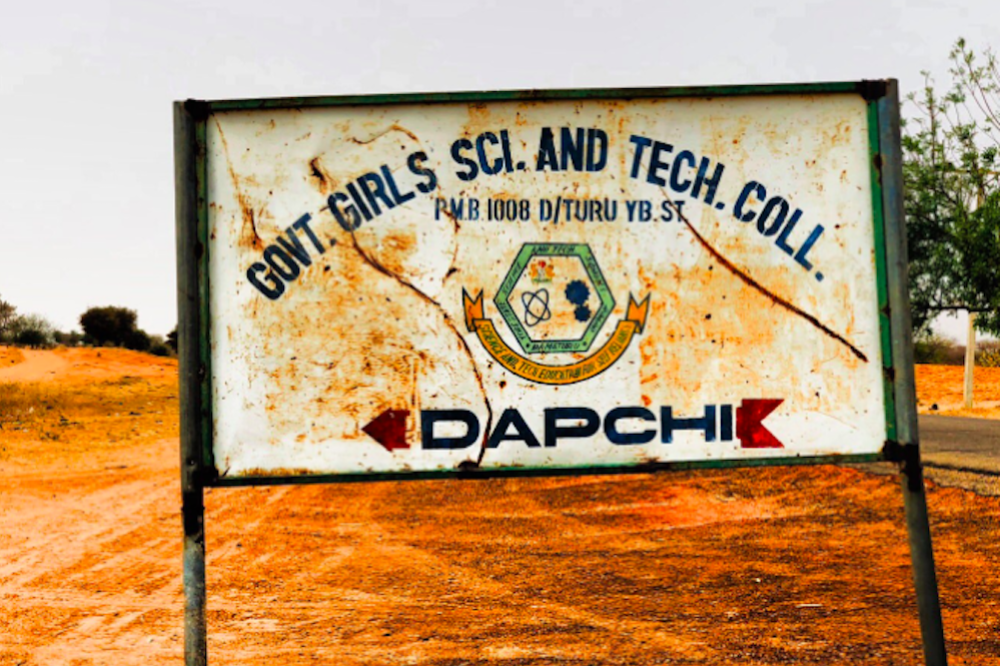
Kidnapped Nigerian schoolgirls are set free by Boko Haram
Children in conflicts, Education in emergencies, Girls' education, Right to education, Safe schools
The government said that so far 76 of the students taken from their school in Dapchi are confirmed as having been returned to the town today.
Boko Haram Islamists who kidnapped 110 schoolgirls in Dapchi, northeast Nigeria, just over a month ago have returned 76 of the students to the town, the government said said.
Information Minister Lai Mohammed said the release was “unconditional” and the result of “back-channel efforts” with the help of “some friends of the country”, without elaborating.
“The 76 are those who have been documented so far,” he said, adding that they were released at about 3am and that a full headcount was underway.
Nigeria’s President Muhammadu Buhari said last week the government had “chosen negotiation” to secure the return of the Dapchi girls rather than use military force.
Mohammed said: “For the release to work, the government had a clear understanding that violence and confrontation would not be the way out as it could endanger the lives of the girls, hence a non-violent approach was the preferred option.
“Within the period when the girls were being brought back, (an) operational pause was observed in certain areas to ensure free passage and also that lives were not lost.”
Nigeria’s presidency said separately that the girls were in the custody of the country’s intelligence agency, the Department of State Services.
The Dapchi kidnapping on February 19 brought back painful memories of a similar abduction in Chibok in April 2014, when more than 200 girls were taken.
How did it happen? Nigeria to investigate schoolgirl abductions
Aisha Alhaji Deri, a 16-year-old student who was among those kidnapped in Dapchi, told reporters they were not mistreated during their time in captivity.
But she added: “When we were being taken away, five of us died on the way.
“They brought us back this morning, dropped us outside the motor park and said we should all go home and not go to the military because they will claim to have rescued us.”
Don’t ever put your daughters in school again. What Boko Haram fighters reportedly told Dapchi residents today. Source: Associated Press
Parents earlier told AFP the girls were brought back to Dapchi in nine vehicles at about 8am. Some of the students headed to their homes in surrounding villages.
Bashir Manzo, who heads a parents’ support group in Dapchi, said: “These girls were not accompanied by any security personnel.
“Their abductors brought them, dropped them outside the school and left, without talking to anyone.”
Parents in the remote town said the girls had been taken for medical check-ups after their ordeal and that security was tight in the town
Boko Haram has used kidnapping as a weapon of war during its nearly nine-year insurgency which has claimed at least 20,000 lives and made more than two million others homeless.
The Islamic State group affiliate has not claimed responsibility for the abduction but it is understood that a faction headed by Abu Mus’ab al-Barnawi was behind it.

In August 2015, IS publicly backed Barnawi as leader of Boko Haram, or Islamic State West Africa Province, over Abubakar Shekau, whose supporters carried out the Chibok abduction.
Analysts have attributed a financial motive to the Dapchi kidnapping given government ransom payments made to Boko Haram to secure the release of some of the captives from Chibok.
The Chibok abduction also triggered a global campaign for their release, spearheaded by the US former first lady Michelle Obama. There was no similar campaign for the Dapchi girls.
Since May 2016, 107 Chibok girls have escaped, been found or been released as part of a government-brokered deal with the jihadists.
Statement by Gordon Brown, UN Special Envoy for Global Education
“There will be huge relief among families at the release of many of the kidnapped Nigerian girls. We must now insist that all girls are released and that none remain in captivity.
“And we should now move quickly with an updated Safe Schools Initiative to ensure all schools are made secure so that girls can enter classrooms safely. Education must be free of fear.”
More news

